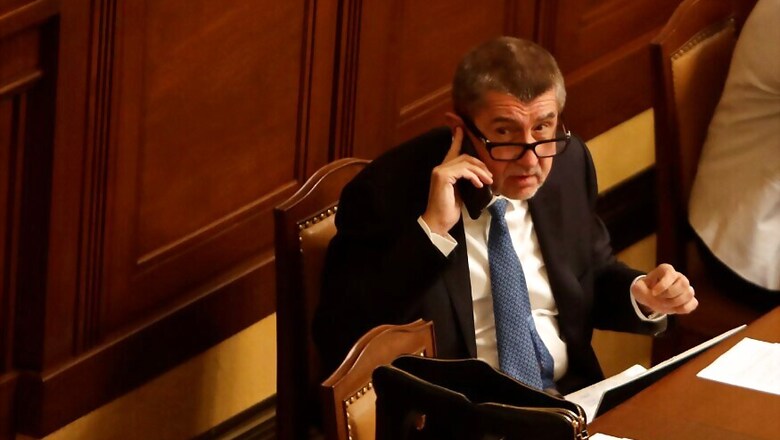
views
Prague: The Czech lower house voted on Friday to allow prosecution of Prime Minister Andrej Babis in a case of alleged EU subsidy fraud, a charge that has blocked his attempts at creating a government.
Lawmakers voted 111-69 to lift Babis's parliamentary immunity. Jaroslav Faltynek, the deputy chairman of Babis's ANO party, was also stripped of his immunity in another vote.
Both men deny wrongdoing in the case, in which police allege Babis hid ownership of a farm and convention centre a decade ago to receive a 2 million-euro subsidy involving European Union funds.
Babis, the country's second richest person via his Agrofert conglomerate, where Faltynek also worked, has called the subsidy case a ploy by opponents to drive him out of politics.
"The problem of this false political case is that I have entered politics," Babis told lawmakers before the vote. "However, I won't give up."
Babis himself voted to lift his immunity. The case has hung over him since last year, when he was first charged and lawmakers took away his immunity, which he regained in October when ANO was the runaway winner in a national election.
Babis remains popular with voters for his pledges to straighten out the political scene by battling corruption and running the state more efficiently.
ANO scored three times as many votes as its nearest rival in the election, which saw a rise of protest parties, as in other votes around Europe.
But ANO lacks a majority and no other party will rule with it while Babis faces the investigation. On Tuesday, Babis's minority government lost a confidence vote in its first attempt.
Babis has raised the possibility he does not need to lead the next government, a condition of potential partners like the mainstream parties Civic Democrats, Social Democrats and Christian Democrats.
Developments may also hinge on a tight presidential run-off vote on Jan. 26-27 between incumbent Milos Zeman, who backs Babis, and academic Jiri Drahos, who says it would be unacceptable to have a prime minister facing police charges.
With a strong economy, the political turmoil has so far not rattled markets. The start of 2018 has seen an uptick in instability elsewhere in the EU's eastern half, where Romania just got its third prime minister in a year and Bulgaria's government faces a no-confidence vote over a lack of progress in tackling corruption.
Last month, Poland re-shuffled its government amid disputes with the EU executive over a judicial overhaul.




















Comments
0 comment